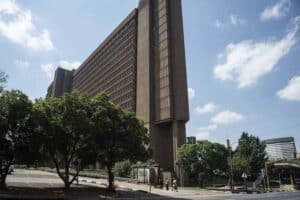Municipalities are still failing to meet their targets – and are lying about it.

Cadre-deployed municipal officials and councillors are not up to the job of running towns and this lack of skills has seen municipalities increase their spending on consultants to carry out even basic administrative work.
Yet, despite this, says Auditor-General Tsakani Maluleke, municipalities are still failing to meet their targets – and are lying about it.
For years now, local government institutions have continued to deteriorate, not only because of inadequate skills, capacity, lack of leadership and a lack of accountability and consequences, but reporting on service delivery is not credible.
R1.61 billion
Maluleke told parliament yesterday that municipalities spent R1.61 billion on consultants in the current period compared to R1.36 billion in the previous financial year to do simple tasks, such as compile VAT returns.
Maluleke said there was no evidence to support the reported achievements and there were inconsistencies in planned versus reported performances.
Briefing the standing committee on the auditor-general about local government audit outcomes for 2021-22, Maluleke said the consultants were ineffective, because work was not adequately reviewed, there were no records and documentation, they did not deliver, there had been poor project management, or the consultants had been appointed too late.
“Sixty-two percent (137) of financial statements submitted for auditing included material misstatements in the area of consultant work,” Maluleke said.
Lack of professionalism
Political analyst Dr Levy Ndou said the biggest issue with local government was the lack of professionalism. “Most people who are working at local government level were not necessarily chosen because of their skills and capabilities,” said Ndou.
“I am talking about people in senior management and also at middle and operational level, because our politicians do not take local government seriously as compared to national and provincial government “All the politicians who are in the upper structures in their parties would be deployed at national and provincial level and all those who are seen to be the weakest, or the least [useful], are deployed at local government level.
“But at the same time, local government has to provide basic and important services, yet its people are not equipped to do so.
“But they are also not financed adequately and would not source qualified people to do a proper job.” According to Maluleke, KwaZulu-Natal spent the most on consultants, with 48 municipalities racking up a bill of R309.26 million. In Limpopo, 26 municipalities spent R263.18 million on consultants, while in North West, 20 municipalities spent R126.95 million.
In Mpumalanga, 20 municipalities spent R245.37 million on consultants. Only 31 municipalities which used consultants received clean audits – at a cost of R58.2 million and another 74 municipalities which used consultants ended up with qualified findings, having spent R665.04 million on consultants.
ALSO READ: PODCAST: Corruption cited as major impediment to good governance
Poor financial planning
Maluleke also noted that poor financial planning and inadequate financial controls and reporting still plagued municipalities, which remained in crisis on service delivery and the ability to spend taxpayer money responsibly.
Last Sunday, ANC secretary-general Fikile Mbalula said the party needed to look into the deployment of councillors and how they engaged communities, because lack of governance was found to be at the centre of failing municipalities in the province.
However, Ndou said even the Minister of Cooperative Governance and Traditional Affairs, Thembi Nkadimeng, had a problem with the department when she was appointed because she noted that many of the councillors were either uneducated or barely computer literate.
“Provincial and national level politicians are not giving us the best of what they have at a level that is very crucial. “So the challenge we have is quite big.”
“It is an area that government has to look at because the bottom line is that they’re the ones who handle crucial issues,” he said. Maluleke has issued a call to action to the government to professionalise local government in the country.
“We are issuing a call to action to prioritise local government through a professionalisation framework,” she said. “When we look at it, we believe, if implemented, across all three spheres of government and implemented decisively, [it] will make a good contribution to professionalising local government.”
NOW READ: SONA 2023: ‘Municipalities have become a feeding ground for corruption’, Fedusa
Support Local Journalism
Add The Citizen as a Preferred Source on Google and follow us on Google News to see more of our trusted reporting in Google News and Top Stories.






